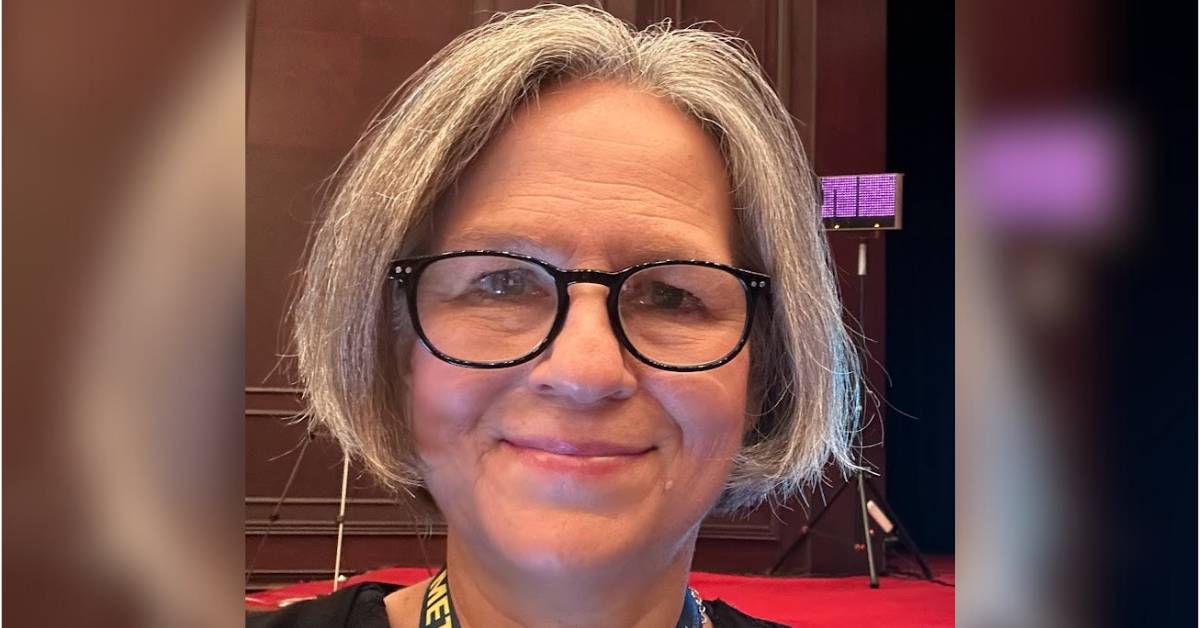Even when she’s enjoying a visit to the Minnesota State Fair, Ruth Petran (PhD ‘12) thinks like a scientist. “I always have my food safety hat on,” she says. “I feel like I’m constantly doing little risk assessments in my head in a venue like the State Fair, in the grocery store, at a restaurant, or in my own kitchen—thinking about what the hazards could be in particular kinds of foods and how they could be controlled.”
Petran’s journey into the world of food safety and public health began during her undergraduate years at Cornell University. While pursuing a degree in consumer food science, she took a food microbiology class during her final semester. “The heavens opened for me during that class, and I found out that that’s what I really had a passion for,” she recalls.
Petran knew she’d need a graduate degree to excel in the food safety space, but it was too late to apply to graduate programs for the following year. Instead, she took a gap year and stayed in Ithaca, NY working in the food science department at Cornell University as a lab technician. In 1986, she moved from New York to St. Paul to pursue a master’s degree from the University of Minnesota food science department within what is now the College of Food, Agricultural and Natural Resource Sciences with a concentration in food microbiology.
Master’s degree in hand, she embarked on a successful career in industry, including serving as a subject matter expert in food safety and public health at Ecolab. In 2007, she decided to return to academia while still working full-time. Driven by a desire to gain a broader understanding of environmental risks, she set out to pursue a PhD in environmental health from the University of Minnesota School of Public Health.
Her decision was influenced by a chance encounter with Professor Craig Hedberg, who would ultimately become her PhD advisor. “He and I worked together at a food industry-related event, with both of us contributing our various expertise on a few different topics, and we started talking about whether there could be a role for me to further my education at the School of Public Health,” Petran says. “The rest is history.”
As Petran learned, pursuing a doctorate degree while being a working mother is not for the faint of heart. “Some of my memories [of the program] are just of trying to balance being in my forties with a family at home, including teenagers with various school activities, plus my studies, and working full time,” she says. “It took a supportive company and family to get me through it, but also the understanding of SPH that not all students are in their mid-twenties or coming right out of their bachelor-degree days. There are different sorts of learners, and I appreciate that I could be accommodated.”
She fondly recalls an infectious disease epidemiology course she took with Regents Professor Mike Osterholm, whom she still considers an important colleague and role model. “I’ve continued to follow his actions and approaches to public health. I appreciate his approach in understanding the science, and then translating it into ‘What do we need to do about it?’ That’s very in line with how I focus on things,” Petran says.
Today, she operates a consulting firm, Ruth Petran Consulting, LLC, where she tackles diverse food safety and public health challenges. She continues to apply her extensive knowledge and experience in sectors from restaurants to food manufacturing facilities in order to distill complex information into actionable strategies for her clients. “The reality is that there are hazards all over the place, and I’m a firm believer that all of them are manageable if we’re laser-focused on what they are, and what we need to do to manage them,” she says.
Among the emerging trends in the food safety space, Petran is particularly interested in how new plant-based foods such as nut milks and meat analogs will be managed. “We have a good history with traditional dairy products, and we know how to process and regulate them,” she says. “But almonds, for instance, can be an allergen for some people. So, we need to make sure manufacturers are aware of and manage those kinds of risks.”
This year, she’s joining the University’s College of Continuing and Professional Studies as an instructor, leading a class called “Regulatory Affairs for Food Production and Distribution” for students who are likely already working in the food industry. She plans to impart lessons that she had to learn on the job regarding how to translate federal regulations to practices in food production plants, restaurants, and grocery stores.
Many of those lessons were hard-won, gained on the front lines of advocating for food safety. “I would never have gotten those experiences without being willing to go into a plant in the middle of the night and watch the people who are working on the machine that chops up the lettuce from the field and then conveys it into a manufacturing plant where it’s washed, bagged, and transported to the grocery stores for us to buy,” she says.
“I appreciate the work that those people do. They’re the ones who are doing food safety. I’m just here to help them. And if I can help them a little bit, then I have succeeded. And I want today’s students to succeed as well. To do that, I think they need to get out and see the world, maybe even in the middle of the night in a food processing plant!”

